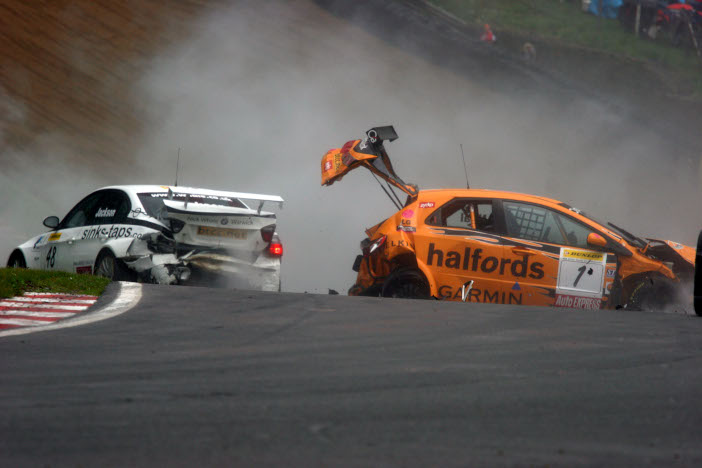A new study into motorsport concussion, which promises to develop “potentially transformational” ways of dealing with injury, has been launched in the UK.
The two-year Rescue-Racer (Research Evaluating Sports Concussion Events – Rapid Assessment of Concussion and Evidence for Return) will trial a number of new diagnostic and concussion tools that can assist in establishing the symptoms and signs of concussion sustained in motorsport.
After an accident, there is obvious concern for the individual racer, but a concussed driver also presents a potentially lethal risk to other competitors, as well as spectators and crew.
The project will use instruments that measure eye tracking, balance and reaction times, as well as those that use salivary biomarkers; and functional Magnetic Resonance Imaging.
Researchers will collect data from 40 professional motorsport drivers in the UK during the 2019 race season from post-injury tests; and then from at least 20 drivers between one and three weeks after injury.
The data will be used to develop evidenced-based, medical decision-making protocols for track-side evaluation after potentially concussive incidents and a plan for clinical management of motorsport concussion, including the important ‘return-to-race’ decision.
Peter Hutchinson, research professor for the UK’s National Institute for Health Research and principle investigator for Rescue-Racer, said, “The project represents a significant step for motorsport medicine. Rescue-Racer prospectively follows drivers through a racing season and uses state-of-the-art assessment tools and imaging.
“This represents a tremendous opportunity to improve the management of drivers with concussion and traumatic brain injury in terms of assisting recovery and enabling return to safe driving.”
The project involves Pittsburgh, USA-based company Neuro Kinetics (NKI), which supplies the I-PAS for measuring eye-tracking, balance, and reaction time. Other partners include the University of Cambridge and Cambridge University Hospitals NHS Foundation Trust, motorsport’s governing body the Fédération Internationale de l’Automobile, and the British Touring Car Championship (BTCC).
Naomi Deakin, Rescue-Racer study coordinator from Robinson College, Cambridge, said, “The advantage with I-PAS, in particular, is that it appears to be both objective and portable. We need an accurate assessment tool that we can easily take to the race circuit medical center or rally service park.
“If I-PAS performs well in Rescue-Racer, we may be able to rapidly, and objectively, identify concussion in the motorsport environment.”
Alan Gow, BTCC’s chief executive, said, “The BTCC has been investigating concussion with Dr Deakin since 2017 and provides a perfect opportunity to study competitors of all ages in a variety of vehicles, with our associated series, including both closed cars and single-seaters.”



